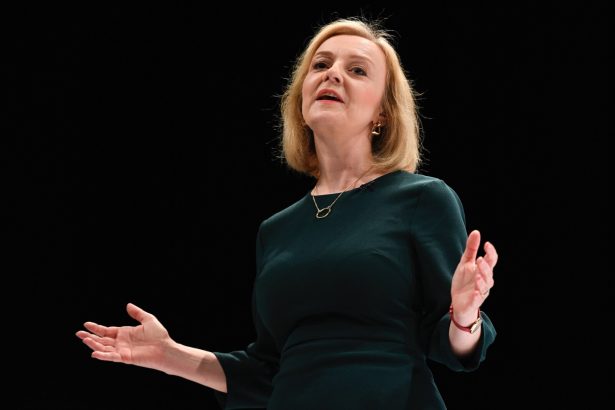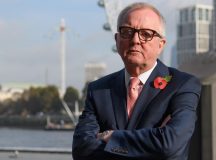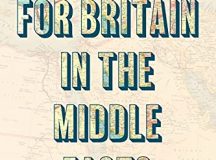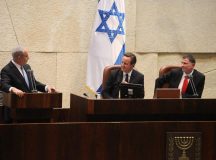‘Geopolitics is back’ Liz Truss has said. In what is the most thorough analysis of her world view to date, Toby Greene assesses how she will seek to position the UK on the global stage and what that means for Israel.
Introduction: Prime Minister Truss in a dangerous world
Liz Truss enters Number 10 at a time of massive policy challenges. Whilst the British public’s concerns will overwhelmingly focus on the cost of living, the energy crisis, and the buckling health service, Truss will know how much her ability to address these domestic challenges is linked to the international situation.
She has described the Russian invasion of Ukraine as a 9/11 type moment. But war in Europe is only one aspect of a wider set of challenges, including the rise of China, to the Western-led vision of liberal international order.
Unusually in British politics, Truss bounces into the top job off the back of foreign policy roles. A year long stint as Foreign Secretary was preceded by two years as Secretary of State for Trade. This has provided ample chance for Truss to speak her mind on Britain’s place in the world.
So, what can we say about Liz Truss’s international world view, and what does it mean for UK relations with Israel, which faces its own pivotal election at the beginning of November?
Truss and the 21st Century Tories
Truss was a Johnson loyalist from his successful 2019 leadership bid to the bitter and humiliating end of his chaotic premiership. As Johnson’s Foreign Secretary, we can expect continuity rather than change in foreign policy under Truss.
But whilst Truss and Johnson reached similar positions politically, they did so from very different backgrounds and motivations. Johnson’s Conservatism flows naturally from his origins as the Eton educated son of a Conservative politician. Liz Truss is a northern state school educated daughter of a maths professor and a nurse. She made her own way to Conservatism from a left-wing household via a stint as an anti-monarchist Liberal Democrat.
Truss, more than Johnson, is a politician motivated by ideas. She was comfortable describing herself in a 2021 interview as ‘probably one of the more ideological among my colleagues, in that that’s what motivates me’. Johnson made his mark as a journalist and TV personality for whom style took precedence over substance. Truss rose as a corporate economist and policy wonk, running a think tank before entering parliament in 2010. As a backbencher, Johnson did not join any Conservative party faction. Truss, by contrast, founded the Free Enterprise Group of Conservative MPs.
She then went on to co-author the political manifestos After the Coalition (2011) and Brittania Unchained (2012) with then-fellow backbenchers Dominic Raab, Kwasi Kwarteng, Priti Patel and Chris Skidmore, most of whom later found senior roles in Johnson’s Cabinet.
If Johnson’s passion is classics, Truss’s is maths. Economic liberalism is at the core of her world view. Her connection to the Thatcherite legacy is more than just brightly coloured power suits and getting pictured riding on a tank. It is an ideological commitment to small state economic liberalism at home and free trade abroad.
Brittania Unchained grabbed headlines for passages that branded the British workforce as lacking ambition and having a poor work ethic, which it blamed on excessive dependency on welfare and celebrity culture. But its bigger goal was to reject pessimism and declinism, and to call on Britain to learn from more enterprising economies, including the national and personal ambition shown by many in the rising non-West (Brazil, India, China, Singapore, South Korea). Israel features in the book (in a passage written by Skidmore) as an example of an innovation superpower whose spending on R&D as a percentage of GDP massively outstrips Britain’s.
After the Coalition included a foreign policy vision in which ‘Conservatives are equally ambitious for Britain to “punch above her weight” internationally and fulfil her historic role’. It emphasised defence spending and argued that ‘a pragmatic balance between humanitarian concerns and our national interests can be the only permanent principle upon which to base a foreign policy’. This included overseas military intervention, where both humanitarian factors and national interests ought to be considered.[1]
Truss and Global Britain
Truss campaigned for Remain in the referendum, but she has proven to have the heart of a leaver. Having been rewarded by Johnson in 2019 with the job of Trade Secretary in his first cabinet, she set about fusing her personal brand with that of ‘Global Britain’. Google ‘Truss’ and ‘trade deal’ for countless images of the former Trade Secretary in front of a Union Jack putting her signature to another bilateral trade deal, including one with Israel.
Whilst the economic significance of these deals is debated (most of them copy pasted terms the UK enjoyed through the EU), the optics proved a hit with the Tory base.
The vision of post-Brexit Britain as an independent, trading power with worldwide interests and ambition is the common core of Johnson and Truss’s foreign policy vision. It is a theme Truss carried with her into the role of Foreign Secretary, when she received the promotion in September 2021. Weeks into the job, in her October 2021 speech to the Conservative party conference, she outlined a vision to make Britain ‘more competitive, bolder, and more forward-leaning than any other country on Earth’.
As a Conservative, Truss is comfortable with the language of patriotism and the national interest. She was part of the government that placed International Development (an independent department since 1997) back under the purview of the Foreign Secretary, with the aim that development spending should be more clearly aligned to UK foreign policy goals.
But this is not a narrow view on national interests. Rather it is one that taps into the legacy of Churchill and Thatcher (and Blair), envisioning Britain as an economic and military power with a global role, working with like-minded states to defend free trade, liberty, and rule of law.
RUSI Deputy Director Malcolm Chalmers captured it well, saying ‘She plays to that very gung-ho optimistic soft nationalism that Johnson conveys quite successfully … It’s not a dour, pessimistic, backward-looking nationalism. It’s a “we can do it. We’re the U.K. Anything is possible,” style of nationalism.’
Articulating her foreign policy agenda in a speech to Chatham House, a few months into the job, she articulated her vision of a ‘Network of Liberty’. She declared: ‘The more freedom-loving countries trade with each other, build security links, invest in our partners and pull more countries into the orbit of freedom, the safer and freer we all are’.
She believes this network needs to work harder to assert its interests in a world of great power competition where, as she declared in her April 2022 Mansion House Speech, ‘Geopolitics is back’.
She repeats a narrative according to which freedom loving nations took an ill-advised nap after the end of the Cold War, thinking the End of History would take care of itself. Now, Truss warns, we all need to wake up and smell the geopolitical reality, in which we have become excessively dependent on bad guys like Russia (for energy) and China (for critical resources and infrastructure).
For Truss, in this divided world, the UN and WTO have proven impotent, and coalitions of likeminded states need to strengthen and expand their alliances. She calls for the G7 to ‘act as an economic NATO, collectively defending our prosperity. If the economy of a partner is being targeted by an aggressive regime we should act to support them. All for one and one for all.’ Undeterred by the catastrophic exit from Afghanistan, she also affirms that ‘NATO must have a global outlook, ready to tackle global threats.’
But this is not a struggle of the West versus the Rest, but a vision of a network defined by peace-loving and free-trading nations. Truss’s October 2021 conference speech was revealing about her mental map of the world:
We must win this battle for economic influence … and this starts with forging closer ties with our friends and allies including: The G7 and NATO; Our Pacific partners like Australia, Japan and Mexico; The great democracy of India and our friends across the Commonwealth; Israel; South Korea; The Gulf states; Those countries who escaped the USSR and fought for freedom like the so-called Visegrad Four and the Baltic 3; And of course our vital strategic partner the United States.
If you thought Britain was a rainy island off the Northwest coast of Europe, you were wrong. Nor is it a bridge in the Transatlantic relationship. Rather it is an independent, global, maritime economic, technology and military power with an innovative, low regulation and business friendly economy and a global network of like-minded allies committed to free-trade, sovereignty and rule of law. This is a vision of Britain that implicitly draws on rather than repudiates the map of the empire.
This call for likeminded nations to step up against Russia and China is backed by a policy to commit a whopping – and easier said than done – 3 per cent of GDP on defence. This is a level not seen since the end of the Cold War and far above the 2 per cent benchmark for NATO members.
The AUKUS deal with the US and Australia aimed at countering China was an important symbol, and according to Truss, ‘Euro-Atlantic and Indo-Pacific security are indivisible.’ She has also championed the British ambition to join the rebooted Trans-Pacific Partnership, a free trade area of Pacific Rim countries from which the US withdrew under Trump in 2017.
For Truss – and this is hardly a view unique to her – China is an unfair trader that does not play by the rules, on whom the rest of the world has become far too dependent, and which is a perpetrator of genocide against the Uighur population to boot. For Truss, countering the Chinese threat is not just military but economic. She repeatedly alludes to its global infrastructure and development projects drawing developing nations in Africa and Asia into debt traps and dependency.
She told Chatham House in November 2021, ‘Our adversaries seek to use economics and technology as tools of control. We want to use them as tools of liberation.’ As Foreign Secretary she announced a development policy focussed explicitly on ‘giving [developing nations] an alternative so they are not burdened with unsustainable debt with strings attached’.
This should be contrasted with the Trumpian ‘America First’ protectionism and isolationism, and the anti-globalism and anti-globalisation of radical right Eurosceptic politicians like Marine Le Pen in France or Hungarian Prime Minister Victor Orban, and the Corbynite wing of Labour. All of those show varying measures of softness towards Putin, who shares their hostility towards liberal internationalism and globalisation.
Whilst Truss is not akin to the European radical right, she’s not that keen on the European centre either. Conspicuously absent from Truss’s October 2021 list of ‘friends and allies’, are specific references to West European allies including France and Germany. This is not surprising given the enduring post-Brexit tensions, which are likely to remain stoked by the escalating row over the Northern Ireland protocol. Indeed, many argue that these tensions serve the Conservative’s domestic political agenda to make Brexit – the glue which bonded its electoral coalition – an ongoing struggle.[2]
Perhaps more surprising is the relative coolness towards the US. Boris Johnson was reportedly not keen on the phrase ‘special relationship’ which he considered ‘needy and weak’. Truss notably did not deploy the phrase during her joint press conference with Secretary of State Antony Blinken in April, even after he did. She reportedly also questioned the notion in their private meeting.
The hoped-for US trade deal has proven a big disappointment for Brexiteers, with Washington showing little enthusiasm. Meanwhile, many in Congress are concerned about the fate of the Northern Ireland Protocol and the Good Friday Agreement. Truss may also feel she has more ideologically in common with small state Republicans than the current Democratic administration.
Some in the Biden administration meanwhile, like some EU diplomats, are reportedly put off by the pitch of Truss’s rhetoric on the Russia-Ukraine War.
Whilst China is the bigger long-term challenge, it is Russia that poses the acute security threats. But for Truss, the Ukraine war is about more than European security. In a March 2022 speech in Washington she declared: ‘If we let Putin’s expansionism go unchallenged it would send a dangerous message to would-be aggressors and authoritarians around the world. And we simply can’t allow that to happen.’ For Truss, not only is it a strategic imperative that Putin must lose, but she has been particularly stark in opposing any concession of Ukrainian territory.
There is a consensus among Western governments on helping Ukraine to fight Russian aggression. But many would argue that the strategic imperative to end the war, and the stark reality on the ground, may ultimately justify concessions. They might add that Truss’s maximalist position cuts down room for manoeuvre, and that Ukrainians who are fighting and dying, rather than their allies, should ultimately decide the price they are willing to pay.
Truss’s judgement on the international scene has also been called into question by some of her interview responses. In March she was forced to backtrack after saying she would support UK nationals that wanted to fight for Ukraine. In the closing days of the leadership campaign she sparked a cross response from Macron when she said ‘the jury’s out’ on whether the French president is a friend or a foe.
Then there is a bigger question about the wisdom of her strategic doctrine. Binaries often make for good politics, but not always good international strategy. There are those – such as Henry Kissinger – who question the judgement of pushing Russia and China even closer together, and argue that greater flexibility is required to avoid a global conflict.
More broadly in international politics, the principles of ‘liberty’ are easier to invoke than they are to consistently define or defend. Not all likeminded allies are as likeminded as Britain might like them to be.
The Gulf states, for example, are hardly emblems of democracy and liberty. But they are important long-time strategic and economic partners, and Truss has followed the path of her predecessors in nurturing UK relations with them, including the much-maligned Saudis. As Trade Secretary, Truss lifted the arms embargo on Riyadh and visited the Saudi capital in one of her first trips as Foreign Secretary. For Truss, the free spending Gulf states are valuable partners for infrastructure development projects than can offer what the Foreign Office calls ‘clean, reliable, honest infrastructure financing into the developing world,’ to compete with Chinese economic leverage in Asia and Africa.
And there will be those among Britain’s allies who question Truss’s own commitment to liberty, democracy and rule of law, given her support for the Rwanda asylum policy, and for legislation that would cancel parts of the Northern Ireland Protocol. On Climate Change too, there will be those asking how her commitment to net zero and the COP agenda squares with her calls for extracting more North Sea gas, support for fracking, and apparent distaste for solar panels.
But the bigger problem with Truss’s ‘network of liberty’ is the shadow of Trump. How can NATO and the G7 effectively counter the Russian and Chinese threats with the US commitment to the liberal alliance, and even its own democracy, in such a precarious position? This is a question no Western leader has an easy answer to, nor can easily reflect on in public.
Truss and Israel
In Truss’s mental map of the world, in which decent, honest, sovereign free-trading nations are pitted against aggressive authoritarians, Israel sits firmly in the former category. Israel’s inclusion in Truss’s list of ‘friends and allies’ in her October 2021 conference speech was not an isolated example, with Israel referred to repeatedly as an example of a (non-EU) democratic partner that excels in innovation.
Truss has proudly trumpeted her November 2021 bilateral agreement with Yair Lapid to develop a UK-Israel Bilateral Roadmap. The agreement envisages not only a ‘higher ambition free trade agreement’ but enhanced cooperation in a host of fields including defence, cyber, diplomacy, climate innovation and international development. The agreement was celebrated with a co-authored article with Lapid published in The Telegraph, in which they declared: ‘Israel and the UK are the closest of friends, and today we become even closer. Together we ensure the future is defined by liberal democracies who believe in freedom and fairness.’
Truss’s attitude towards Israel cannot be separated from that of her party, in which a view of Israel as a democratic, economically successful, and strategically significant partner has become increasingly dominant.
The time when being close to Israel came at the cost of good relations with economically more important Arab friends is ancient history. The increasing strategic alignment between Israel and Arab states, which blossomed in 2020 with the Abraham Accords, has gone along with the post-Arab Spring slippage of the Palestinian issue down the regional and international agenda.
Whilst Israel is a pariah for significant chunks of the left – and bursts negatively into the public eye during periodic rounds of violence – for the right this is more grist for the mill in the culture wars. Conservative pro-Zionism helps expose Labour’s internal rifts over the legacy of Corbyn, who got the party bogged down in his anti-Semitic anti-Zionism.[3]
Truss rhetorically extends the problem beyond Labour. She drew fire from civil service unions for referring to ‘woke civil service culture that strays into antisemitism’. In an interview with the Jewish Chronicle, and again in a speech to Conservative Friends of Israel (CFI), Truss proudly described putting her foot down with Foreign Office diplomats by insisting they stand up to an anti-Israel agenda in the UN Human Rights Council. Truss even told CFI she would ‘review a move’ of the embassy to Jerusalem. This was hardly a commitment, nor will it be a priority, but it appears to signal that you cannot be too pro-Israel in today’s Conservative party. During the CFI hustings she felt no need to even refer to the Palestinians.
Like much of Truss’s politics, her philosemitism carries echoes of Thatcher, whose cabinet famously included more ‘old Estonians than Old Etonians’. Though Truss has also discovered in this campaign that philosemitism can risk sounding to some a bit like antisemitism if you are not extremely careful, such as praising her boss at Shell – an Orthodox Jew – as ‘a very astute negotiator’, or including in Jewish virtues that of ‘self-starting and setting up your own business’.
So Truss likes Israel, and she likes Jews. But that does not guarantee plain sailing for UK-Israel relations under a Truss premiership. First there is the issue of Iran. Whilst Truss talks tough on Iran, like many Western leaders, she is unlikely to stand in the way of the Biden administration’s determination to return to the JCPOA, which Israeli leaders and US Republicans will complain is disastrous.
Then there is the question of the forthcoming Israeli election. Israel’s current rainbow coalition, and the liberal minded Yair Lapid, are much easier for Brits to like than a potential Netanyahu coalition of far-right extremists and the ultra-Orthodox. Such a government would be harder to classify in the category of the ‘like-minded’.
This is not only because of the threat they pose to Israel’s liberal and democratic institutions, the status of non-Jewish minorities, and the prospects for a Palestinian state. It is also because of Netanyahu’s foreign policy. Israel has been torn over the Russia-Ukraine war. It is cautious to avoid confrontation with Russia due to the importance of military coordination in Syria – where Israel is fighting an airborne campaign against an Iranian military build-up – and to avoid a backlash against Russian Jews. Lapid’s instinct has nonetheless been to line up with the ‘free world’ to condemn Putin. But Netanyahu feels no special bind to a community defined by liberal democracy and was very protective of his relationship with Putin. He has remained silent on the war and attacked Lapid for ‘babbling’ and ‘endangering our national security’. It will be interesting to see how that equivocation over Russia would go down with Truss.
Conclusion
Liz Truss may begin her premiership with a tad more foreign policy experience than many of her predecessors, and a more clearly developed view of the world. But whilst ambition and self-confidence are undoubtedly necessary to making an impact on the global stage, they are not sufficient. At the end of the day, Britain is a mid-sized power with limited assets and capacities. Truss champions partnerships and alliances – like other British leaders – because Britain’s influence and welfare depend on global trends it cannot control on its own.
And just as Truss’s domestic agenda will be shaped by the international arena, her strength on the world stage will be shaped by the domestic. A UK in recession and internally divided, both economically and culturally, will have diminished international influence.
Israel and her supporters can take comfort that Truss will continue the run of UK prime ministers who are instinctively well disposed to Israel. But they should perhaps be wary of the politicisation of support for Israel, in an increasingly polarised British political culture.
Truss is much less popular in the country at large than she is in her own party, and her prospects for re-election in 2024 aren’t great. Whilst Keir Starmer has made admirable progress in trying to bury the Corbynite legacy in Labour, there is still a very significant anti-Zionist cohort on the Labour left, and a very significant partisan policy gap on Israel.
For UK-Israel relations therefore, Truss’s premiership may prove a too brief interlude before trickier times ahead, should Labour return to power in 2024.
Reference
[1] Kwarteng, Kwasi, Priti Patel, Dominic Raab, Chris Skidmore & Liz Truss, After the Coalition. Biteback Publishing (2011).
[2] Menon, Anand & Matthew Bevington, “Time to find out what Brexit really means”, Z Außen Sicherheitspolit 14, 1-11 (2021), https://doi.org/10.1007/s12399-021-00844-x
[3] For a definition of anti-Semitic anti-Zionism see: https://fathomjournal.org/the-left-and-the-jews-time-for-a-rethink/




































